This story was originally published by The Revelator.
by John R. Platt
Three simple keystrokes will deliver search results that consume less energy and water — and probably contain better information.
A few weeks ago, I wrote an editorial discouraging environmentalists from using generative AI programs like ChatGPT due to their extraordinary energy and water consumption. If you care about the planet, I argued, you shouldn’t use such climate-damaging systems.
Most people responded to the editorial positively, but one follow-up question kept coming up: “How do I get AI completely out of my life?”
That’s a broad question, and it’s a tough one to answer because artificial intelligence has been wrapped into so many aspects of our daily lives, from cell phones, use of Microsoft Word, customer-service inquiries and, of course, search engines.
That last one bothered a lot of you, who complained about Google presenting AI answers to every search, well before any websites that might contain the same (or better) answers.
Now, search results that present AI-generated answers don’t carry quite the same environmental cost as full-fledged generative AI queries — like asking ChatGPT to “write” a full essay — but some research suggests AI search results will use four to five times as much energy as the old non-AI searches we used to enjoy. That’s not nothing, and in the battle against climate change, every watt counts.
Luckily, it turns out there’s an easy way to get AI out of your Google search results. Simply type these three keys after your search term: -AI
(That’s the minus sign immediately followed by the letters AI, with no space between them.)
Here’s an example: I Googled the phrase “why are tigers endangered” and got this result, leading with an AI-generated overview:
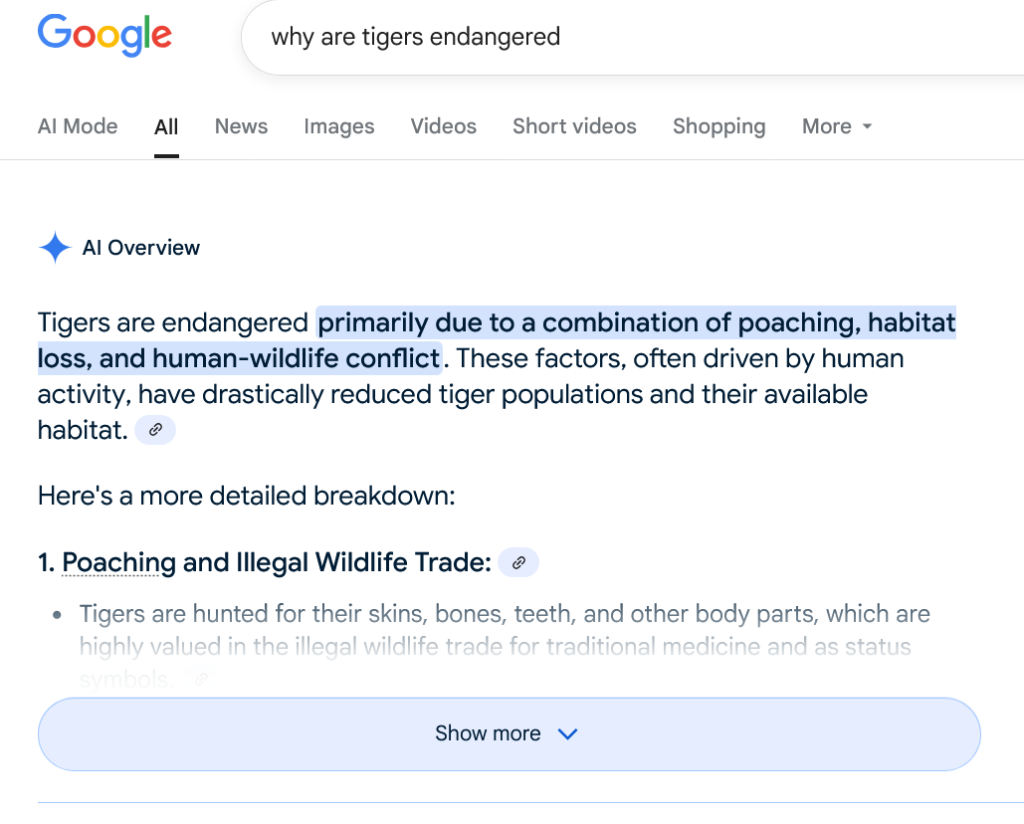
I tried it again with “-AI” at the end of the search phrase and got these results, which start with an authoritative source. Google still includes an overview pulled from the pages, but it doesn’t appear to have been generated by AI:
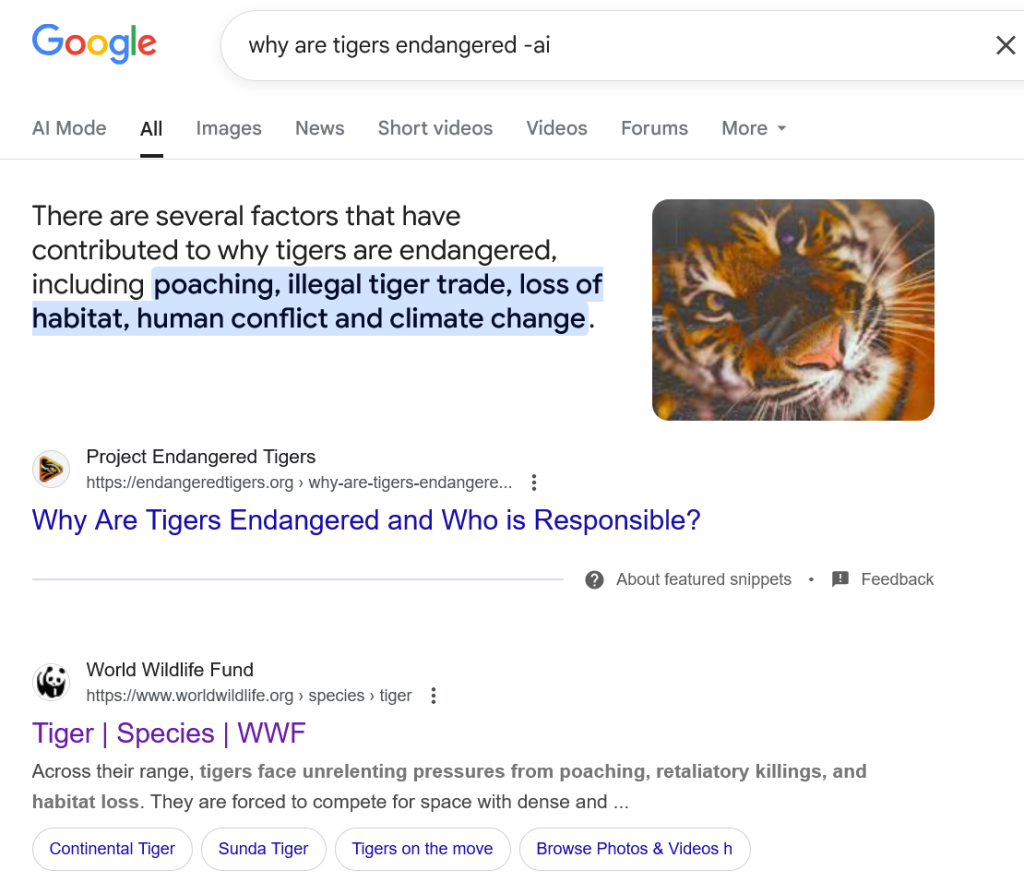
A second example: I searched for information on data centers and noise pollution (another problem of AI) and got this AI-generated search result:
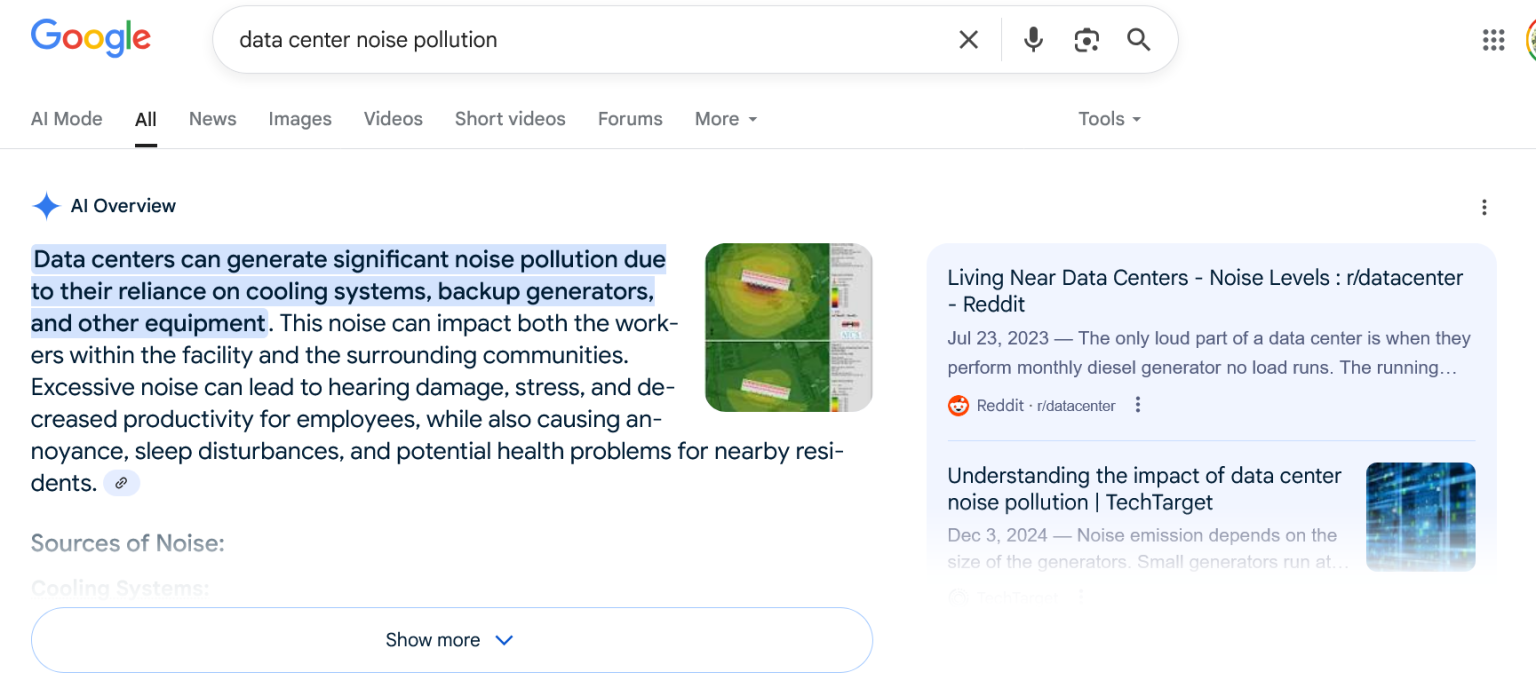
But I added “-AI” to the search and got a reputable source first. Google still included a few lines from that source, but that’s the point: It was sourced in the first place. A lot of AI-generated texts don’t present their sources, so you can’t judge their veracity.
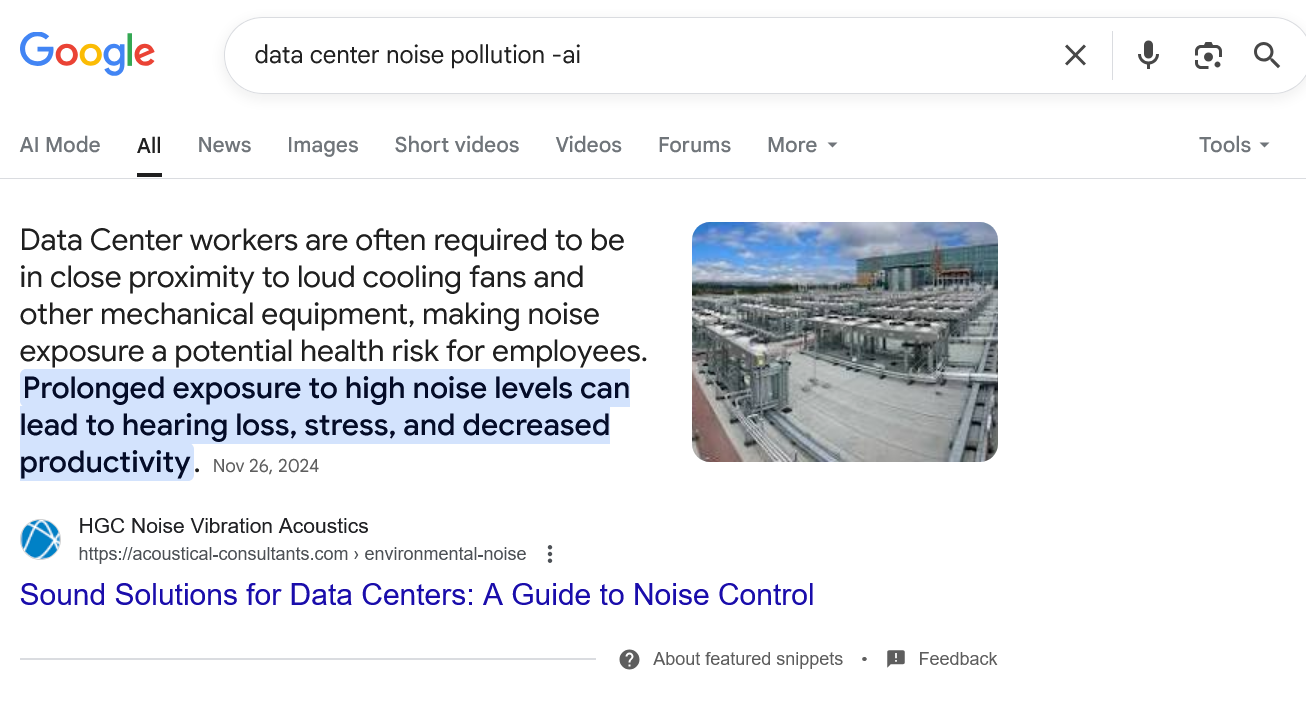
Google is obviously the king of search, but it’s not the only game in town. I tried this on a variety of other search engines and got similar — but imperfect — results.
A normal search on Bing delivered a detailed AI answer from its Copilot AI system.
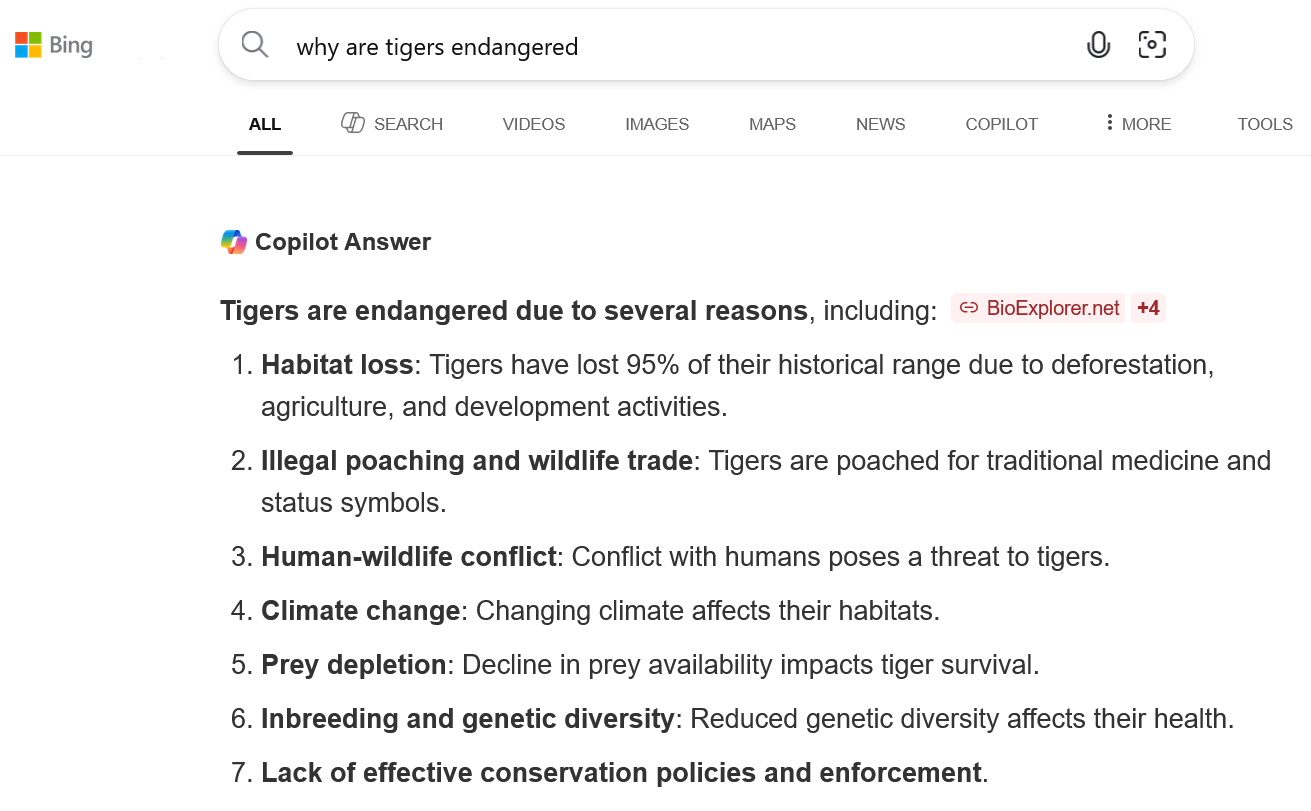
Using “-AI” on Bing delivered a search result with a space for Copilot, but that space didn’t populate.
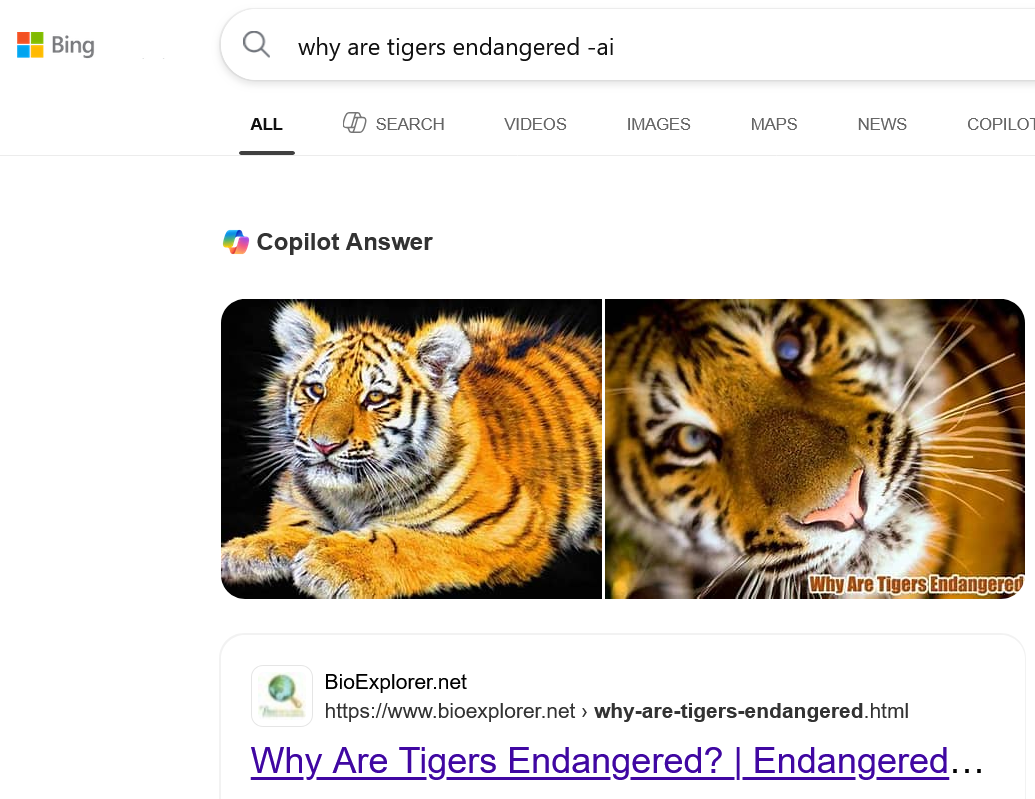
A normal search on Yahoo delivered an AI summary.
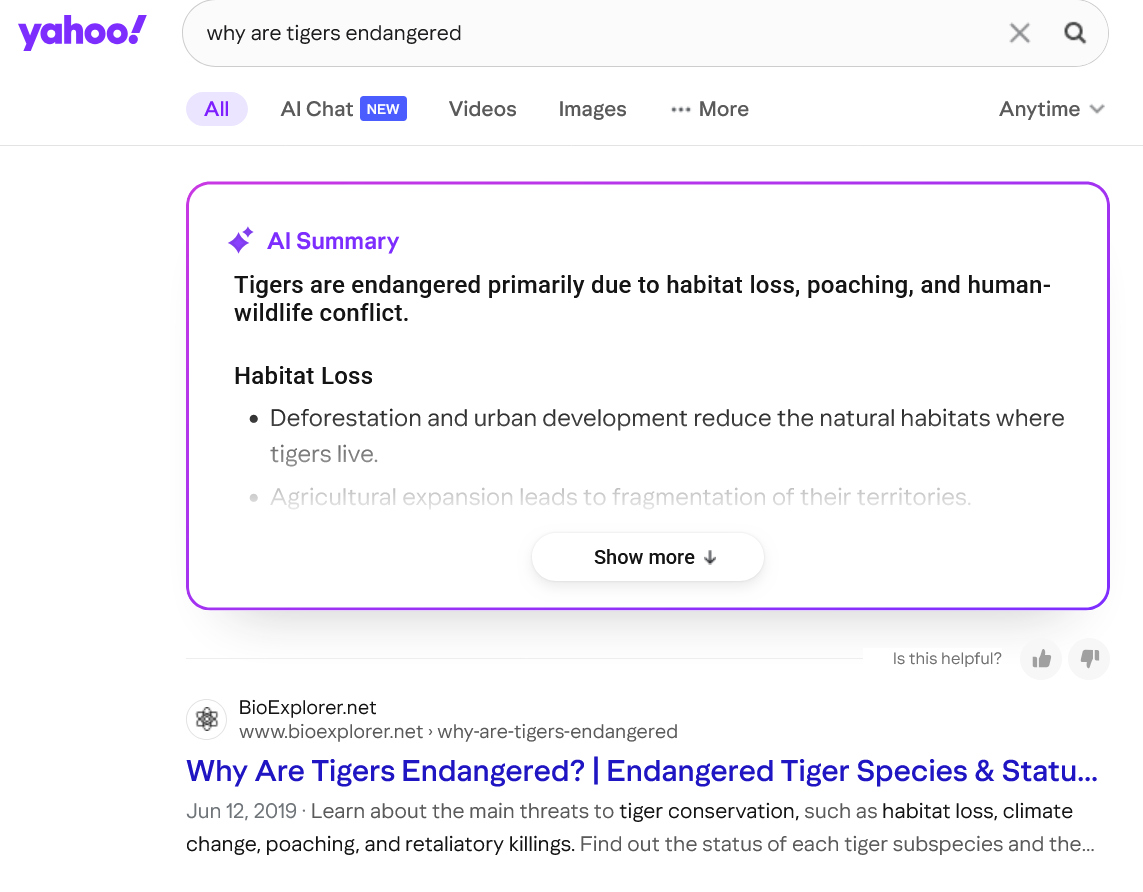
Using “-AI” on Yahoo still generated an AI answer, although it appeared after an authoritative source. (This earns Yahoo a failing grade, in my book.)
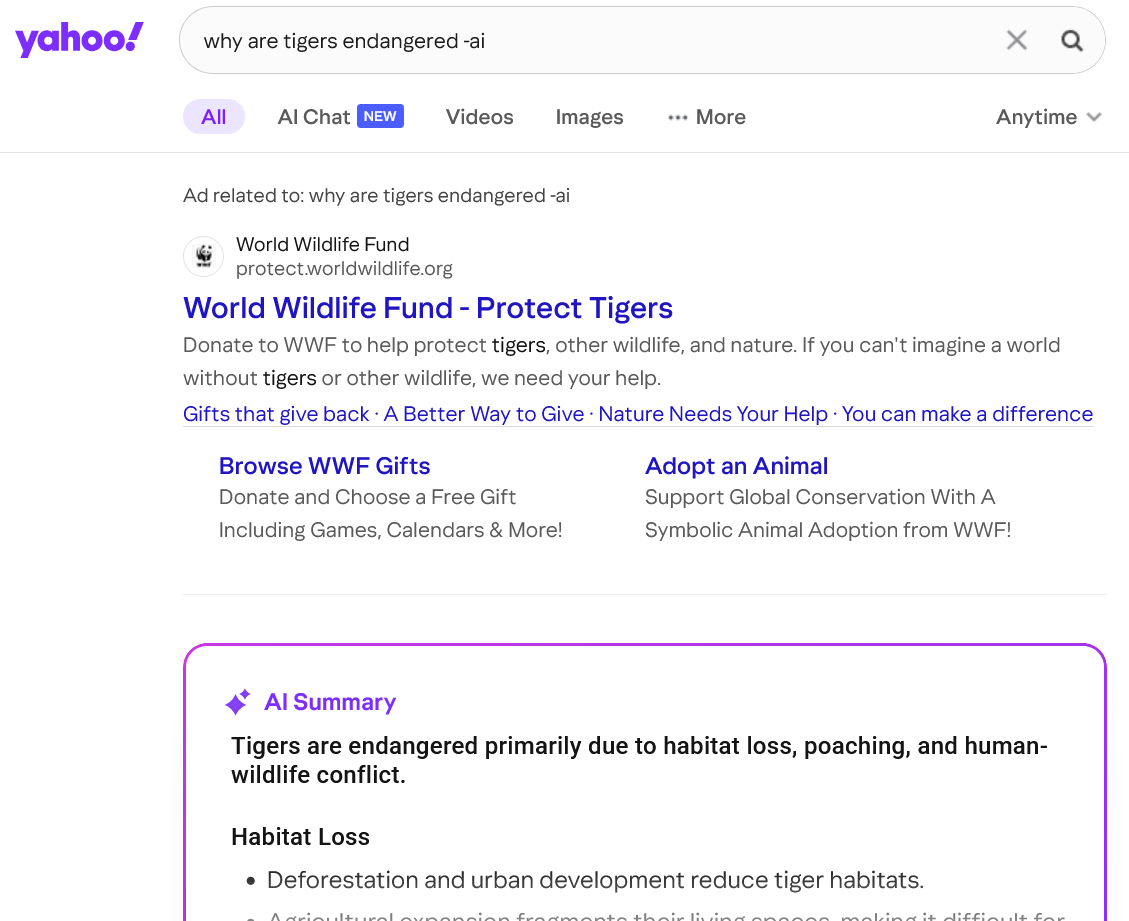
DuckDuckGo presented an AI “assist” on my first search (which, quite interestingly, included a warning about its possible lack of accuracy).
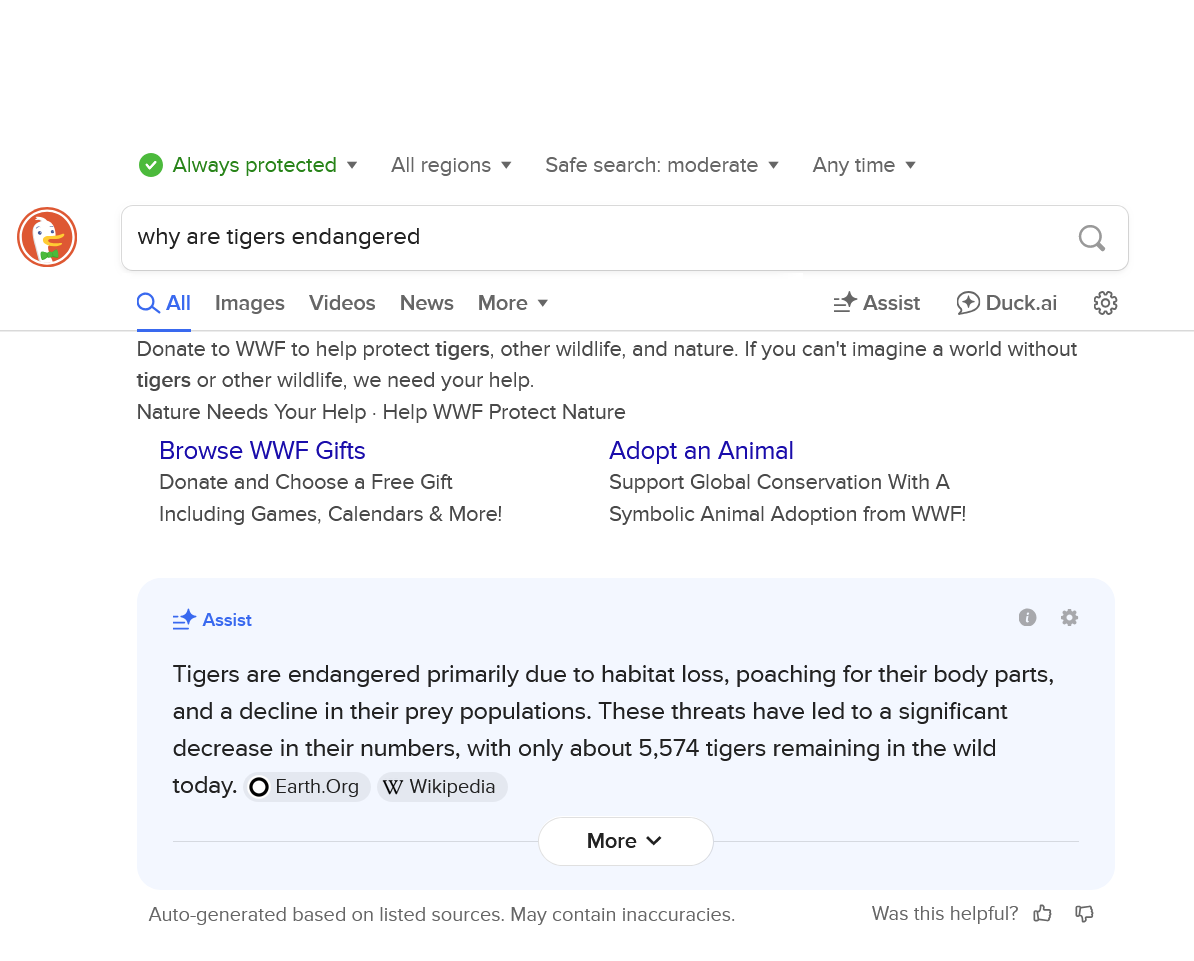
Adding “-AI” to the search on that platform delivered AI-free results. This made DuckDuckGo today’s winner. (It’s worth noting that DuckDuckGo also receives high marks from security specialists because it doesn’t track your search results.)
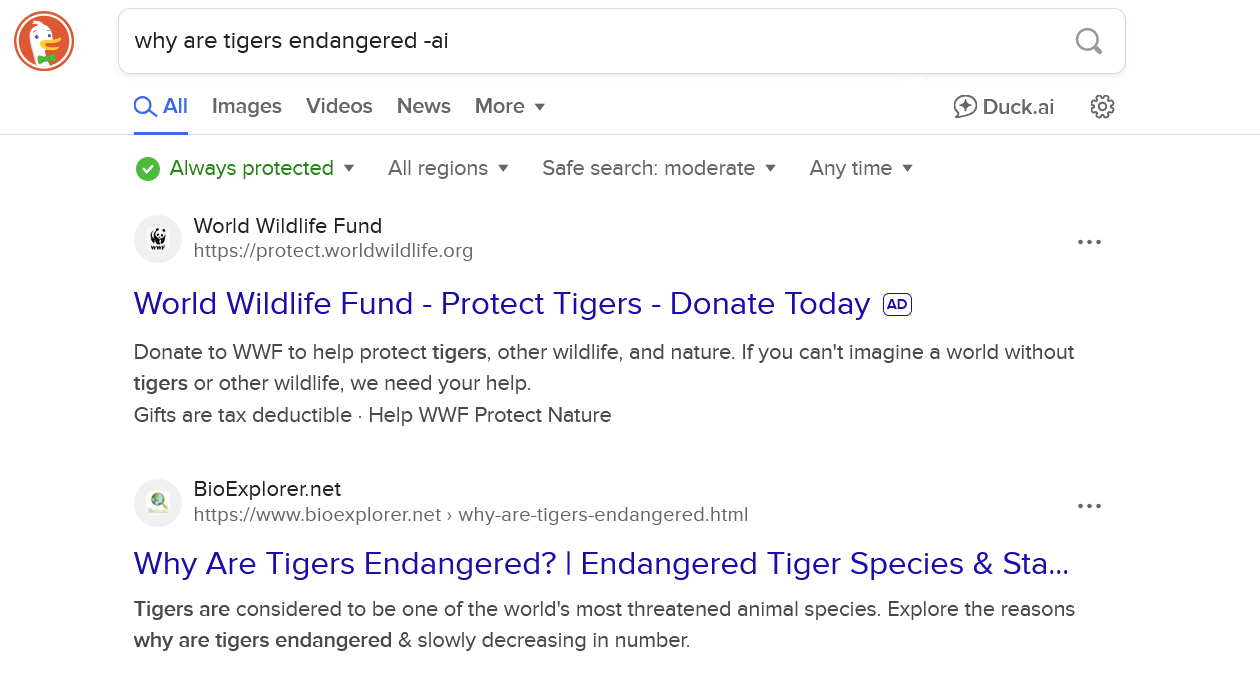
None of these results are perfect, and these search engines are likely to modify their systems at any time. But as of this writing using “-AI” seems like a simple and efficient way to reduce the carbon footprint of your online searches — which, as a journalist who searches for stuff dozens of times a day, is something I appreciate.
Credit where credit is due: I got this tip about Google from a video posted by ABC News chief meteorologist Ginger Zee. Watch her video below, and her Climate A to Zee series on YouTube: https://www.youtube.com/playlist?list=PLQOa26lW-uI9vE04ltQcr8Kz2QRVcYpx5
…you can turn off ai in ddg settings…
That’s a hell of a lot of words for “Switch to DuckDuckGo and turn off the LLM in the
Settingsmenu.”DDG or Qwant is som Munch better
“Do an extra step every single time you do anything.”
you can also just use a search engine that is not participating in AI. Coincidentally, those engines are also better for your privacy.
You did not mention any examples.
StartPage, SearxNG, Kagi, Mullvad Leta, as someone else mentioned DDG if you opt out.
Kagi is very much all in on AI and pushing it on users.
All of those are meta-search engines and not a actual search engines.
Is ecosia.org meta search?
Yes. It uses Bing.
You’re right
Giving Ecosia an “Ethiscore” of 11, in contrast to Google (5.5) and Microsoft Bing (6.5), Ethical Consumer found Ecosia to be superior to the other search engine companies it looked at, but marked it down in seven categories for its relationship with Microsoft (the lowest scorer in those categories).[60]
Ethical Consumer made a point of clarifying that it’s not the actual searches which lead to tree planting, but the click-through of search engine users to the ads, and called for improved transparency concerning its relationship with Microsoft Bing. Wikipedia.org Ecosia
I’m still going to use it. Clicking the ads is what generates the funds to plant the trees, I knew this much before. It’s the only place I will click on the Ad instead of the search result (if it is what I’m already looking for).
There’s also no AI I’ve noticed in my results.
and you’re supposed to make “a” into “an” if the first letter of the next word is a vowel. Why do the semantics matter? Do you like supporting Google’s Gemeni with your searches and ad money or something?
No thanks. I have long since moved on to greener pastures.
You can also use “-fuck” which has the added benefit of removing a lot of the ads that appear. Because you know… They can’t be associated with that kind of search.

A few weeks ago I realised you can just turn off ddg ai summary.
What browser is this?
DuckDuckGo
adding FUCK
also removes the ai results
If you use kagi, the AI summary is opt-in. Trigger it with a question mark at the end of your query. I like kagi.
kagi is by far the best search engine right now. totally worth the subscription.
usually its results are already very to the point articles that don’t require summaries. plus we can configure preference for site we don’t want (no more pinterest and medium slop)
AI slop version of a ranking algorithm. Kagi isn’t even good let alone “by far the best” lol
SearXNG is better. It has access to all of the same indexes that Kagi can use, plus more, for free, and with better privacy and more customization. Kagi is basically just paying for the Google index + AI filtering 🤡
Paying for the exact same bad Google search results is an interesting choice
Does google let you ban pinterest?

Wouldn’t know or care, I use SearXNG. I do know that browser plugins do though if google doesn’t
Paying monthly for the exact same features you can get from browser plugins is an interesting choice lol
EDIT: and yes, SearXNG has this exact feature, too, and access to the same (and more) indexes that Kagi can access… for free… more privately…







